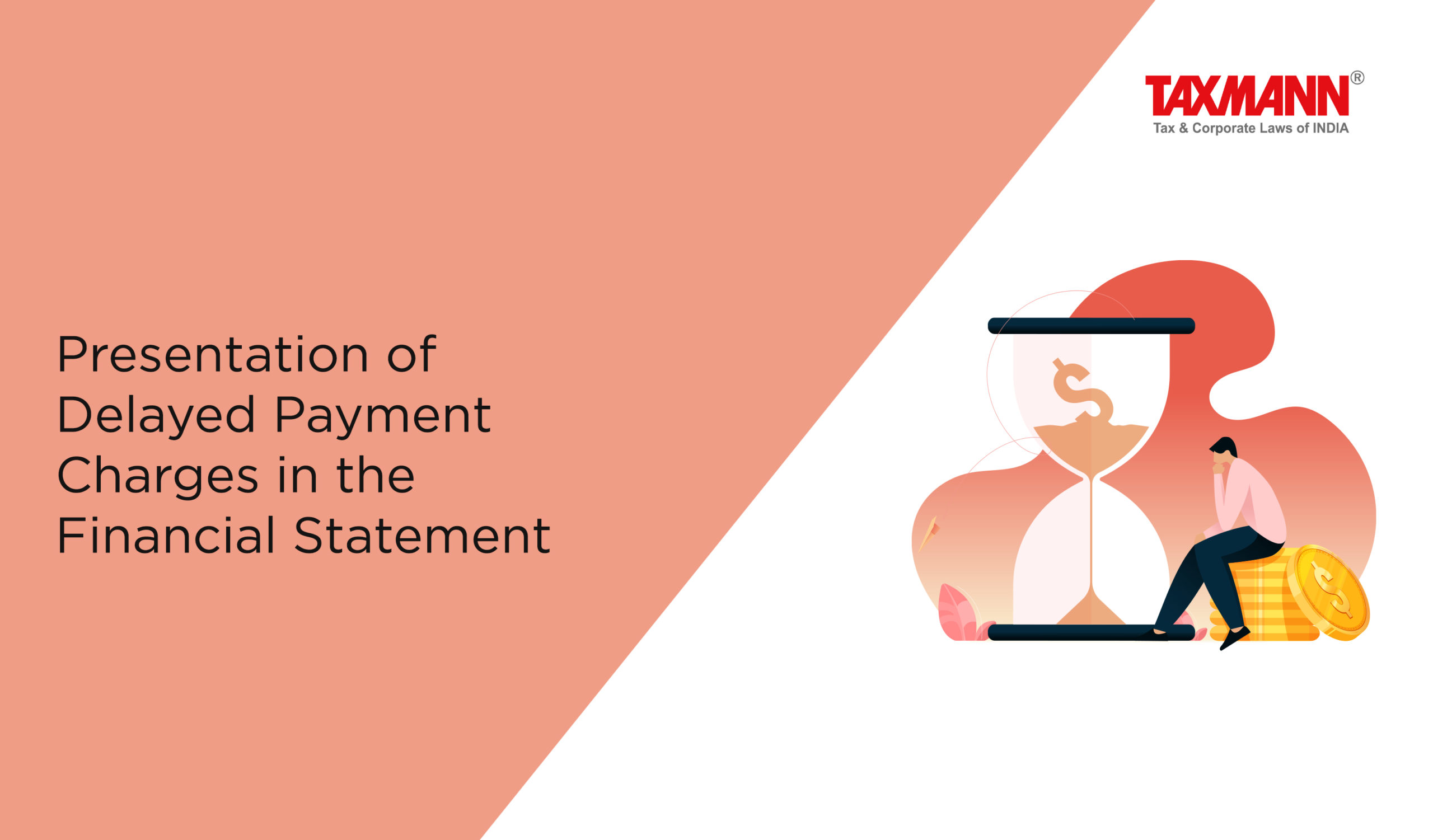Presentation of Delayed Payment Charges in the Financial Statement
- Blog|News|Account & Audit|
- 2 Min Read
- By Taxmann
- |
- Last Updated on 23 June, 2023

A company engaged in distributing power to consumers is authorized to charge the price of the electricity supplied but also to charge an additional charge for delayed payment @ 15% per annum. The management of the company believes that delayed payment charges are of the nature of the penalty and are arising out of normal business activities of the company. Therefore company presented the delayed payment charges (DPC) under “Revenue from Operations” under the heading of “Income from other Operating Activity”. However, the auditor of the company is of a different opinion regarding the nature of the delayed payment charges.
As per the auditor, the amount of consideration of late payment surcharge varies due to differences in the timing of payments and it is to compensate the entity for the time value of money, the nature of late payment surcharge is that of finance income and therefore, the same should be presented as “Other Income”. The company approached the EAC of ICAI to resolve the difference of opinion on the presentation of Delayed payment charges.
The Expert advisory committee has noted that delayed payment charges (DPC) are charged to customers who have not paid the bill within the due date as per Tariff Schedule and such charges are defined in terms of percentage per annum, which indicates that the same is directly linked with the passage of time and the quantum of the same depends on the timing of payment by the customers. While determining the transaction price, an entity shall adjust the promised amount of consideration for the effects of the time value of money.
On the basis of the above, the Expert advisory committee is of the opinion that DPC, being a financing component, if it is significant and practical expedient is either not applied or not applicable as per the requirements of Ind AS 115, the same cannot be considered as ‘Other Operating Revenue’ under the head ‘Revenue from Operations’ rather the same should be presented as ‘other income’ in the Statement of Profit and Loss.
Click Here To Read The Full Story
Disclaimer: The content/information published on the website is only for general information of the user and shall not be construed as legal advice. While the Taxmann has exercised reasonable efforts to ensure the veracity of information/content published, Taxmann shall be under no liability in any manner whatsoever for incorrect information, if any.

Taxmann Publications has a dedicated in-house Research & Editorial Team. This team consists of a team of Chartered Accountants, Company Secretaries, and Lawyers. This team works under the guidance and supervision of editor-in-chief Mr Rakesh Bhargava.
The Research and Editorial Team is responsible for developing reliable and accurate content for the readers. The team follows the six-sigma approach to achieve the benchmark of zero error in its publications and research platforms. The team ensures that the following publication guidelines are thoroughly followed while developing the content:
- The statutory material is obtained only from the authorized and reliable sources
- All the latest developments in the judicial and legislative fields are covered
- Prepare the analytical write-ups on current, controversial, and important issues to help the readers to understand the concept and its implications
- Every content published by Taxmann is complete, accurate and lucid
- All evidence-based statements are supported with proper reference to Section, Circular No., Notification No. or citations
- The golden rules of grammar, style and consistency are thoroughly followed
- Font and size that’s easy to read and remain consistent across all imprint and digital publications are applied



 CA | CS | CMA
CA | CS | CMA
